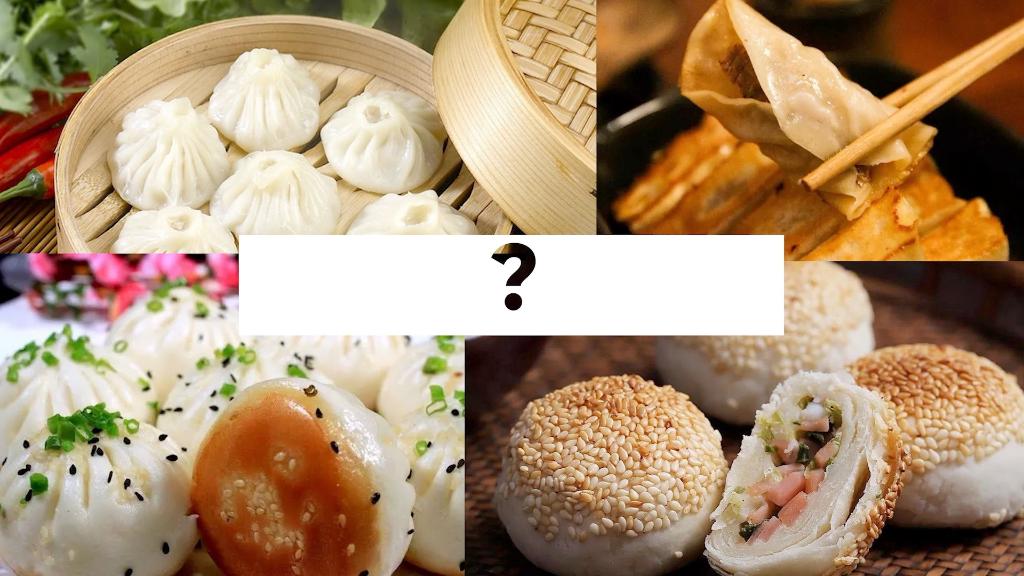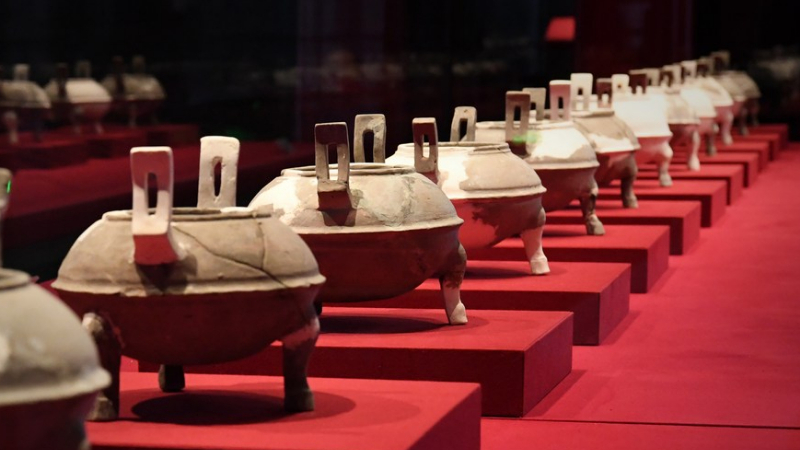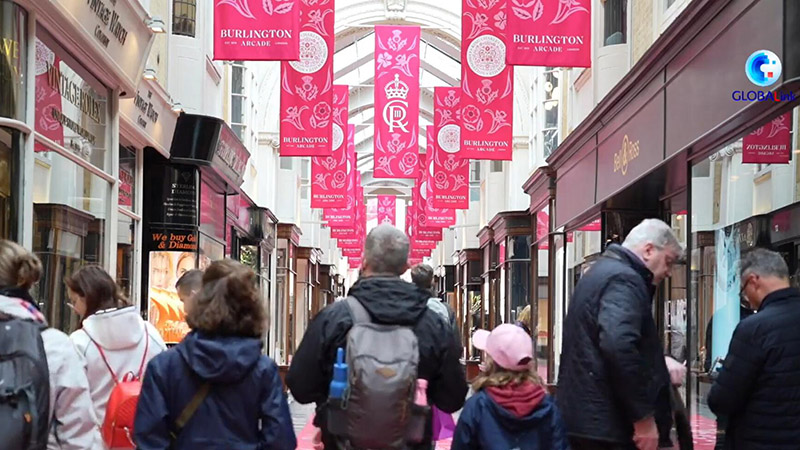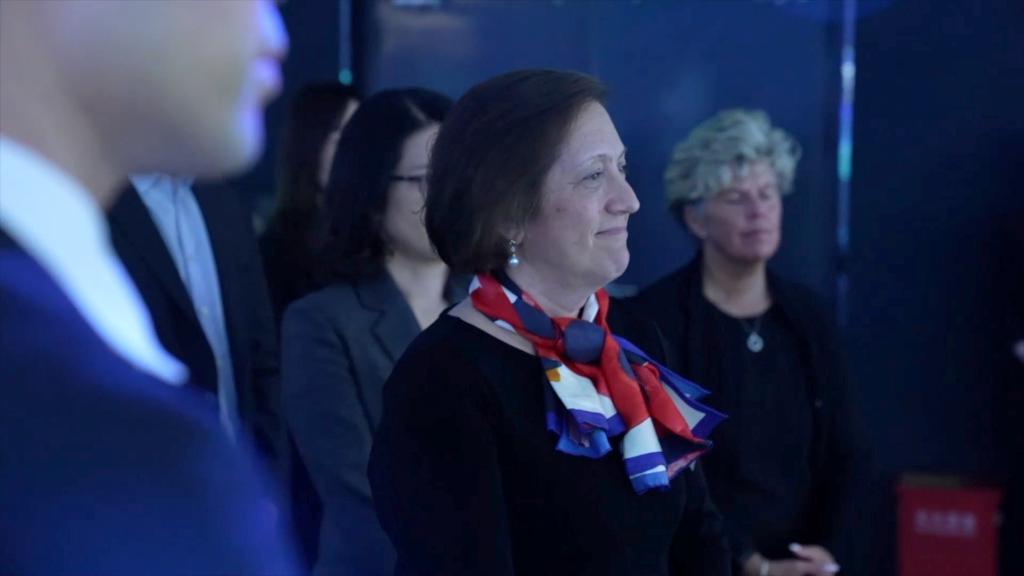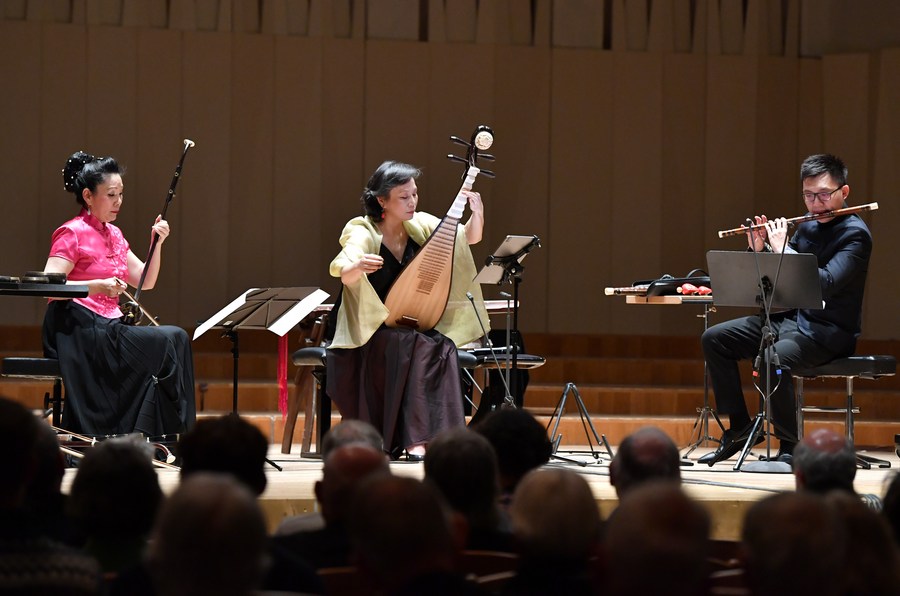
Zhang Zhenfang (L), Yang Jing (C) and Tan Qinglun perform with traditional Chinese musical instruments in St. Gallen, Switzerland, April 28, 2023. (Xinhua/Lian Yi)
Performed with traditional Chinese musical instruments, "A Moonlit Night on the Spring River," as the concert's opening piece, captivated the audience with its understated and elegant melody.
St. GALLEN, Switzerland, May 2 (Xinhua) -- As night fell in northeastern ancient Swiss city of St. Gallen, local residents flocked to the 114-year-old St. Gallen Concert Hall to attend a Chinese classical music concert.
Performed with traditional Chinese musical instruments, "A Moonlit Night on the Spring River," as the concert's opening piece, captivated the audience with its understated and elegant melody. Ahead of the performance, Yang Jing, the traditional Chinese instrument pipa player, introduced this classical Chinese music piece, whose title originated from a long poem written by Chinese poet Zhang Ruoxu of the Tang Dynasty.
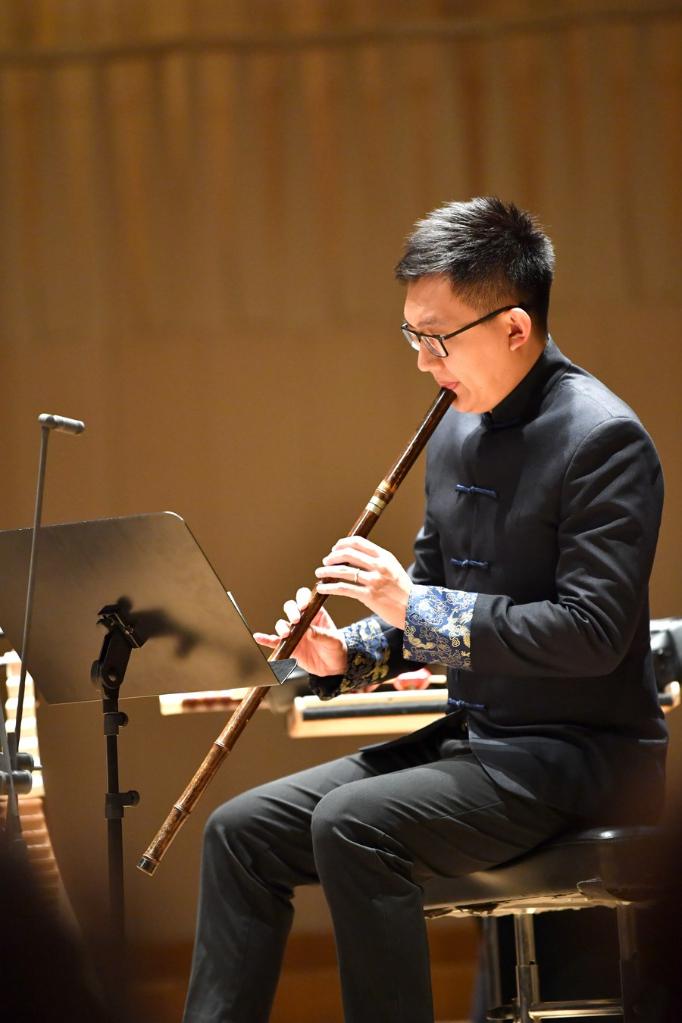
Tan Qinglun plays traditional Chinese musical instrument Xiao, a vertical bamboo flute, in St. Gallen, Switzerland, April 28, 2023. (Xinhua/Lian Yi)
"Traditional Chinese music has a long history. Since China is rich in languages and geographical diversification, its music also varies," Yang wrote on the concert brochure. "We thank the St. Gallen Symphony Orchestra for its invitation of our traditional Chinese musical instrument performance."
"Music has no boundary," said Florian Scheiber, the concert director of the St. Gallen Symphony Orchestra and the organizer and producer of this project. "I hope people here not only listen to European and American music, but also all kinds of music."
Scheiber told Xinhua that he always had an idea of "organizing musicians around the world to play their own music in St. Gallen, including those from China, Japan, Iran, Uzbekistan, and other countries," which in the end gave rise to this concert -- "Classical Music from China."
"I want more people to appreciate different types of music and understand different cultures," he said. "It is a great honor for us to have different styles of music from around the world, especially Chinese classical music. We really appreciate it."
Performed on stage by the Chinese traditional music trio composed of Yang Jing, Zhang Zhenfang, and Tan Qinglun were a total of 14 Chinese classical music pieces, including "Fisherman's Song at Dusk," "Shadows of Apricot Blossoms," "Ambush from Ten Sides," "Moon Reflected on Erquan," "Kucha Dance," and "Su San Searches Solution."
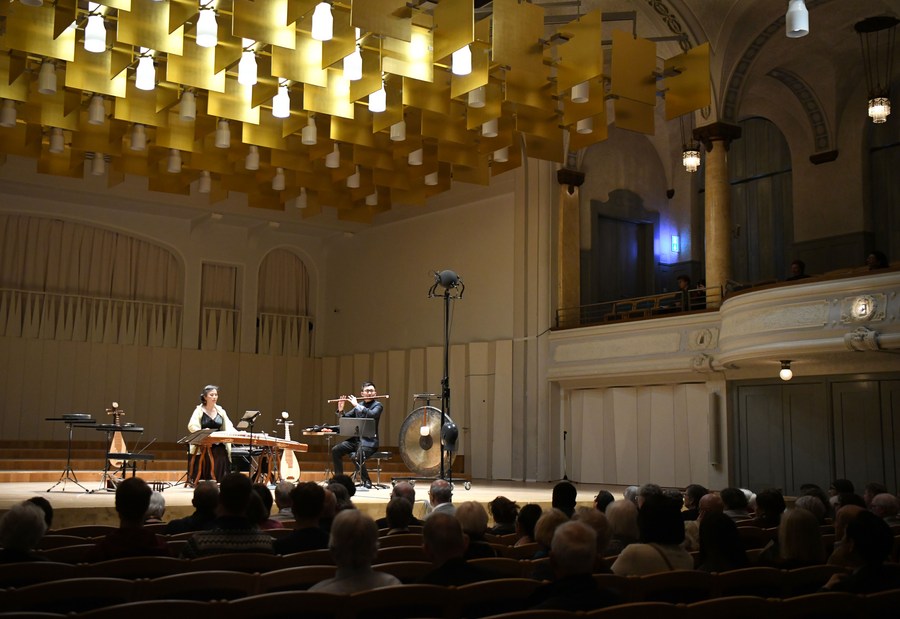
Yang Jing (L) and Tan Qinglun perform with traditional Chinese musical instruments in St. Gallen, Switzerland, April 28, 2023. (Xinhua/Lian Yi)
Yang's pipa solo "Ambush from Ten Sides" brought the concert to a climax with furious and passionate rhythm. In the second half of the concert, "Su San Searches Solution," a piece especially arranged and rehearsed for the concert by the trio, integrating traditional Chinese musical instruments, Peking Opera and rap music elements, evoked an enthusiastic response among the audience. A well-known Swiss folk song was played as the concert's encore, winning a roar of prolonged applause.
"In the pipa solo 'Ambush From Ten Sides,' I could hear horses and two groups fighting each other," said Regula Koenig, an instrumentalist in St. Gallen. "The musicians are really professional. And we are amazed and touched because the music is so old, with such a long history."
Describing Chinese music and Chinese traditional musicians as quite interesting, local resident Monika Amann said, "Each country has a different culture, and I guess you have to listen more to get to know the Chinese culture."
"It's very exciting to hear familiar music in this place. I could tell that the local residents are very fascinated by Chinese classical music, as they watch the whole performance so attentively," said a Chinese woman in the audience.
"I think the history of each country and nationality may be different, but the music is universal. Civilizations of all kinds can learn from each other, and different cultures can also communicate," she said.■





